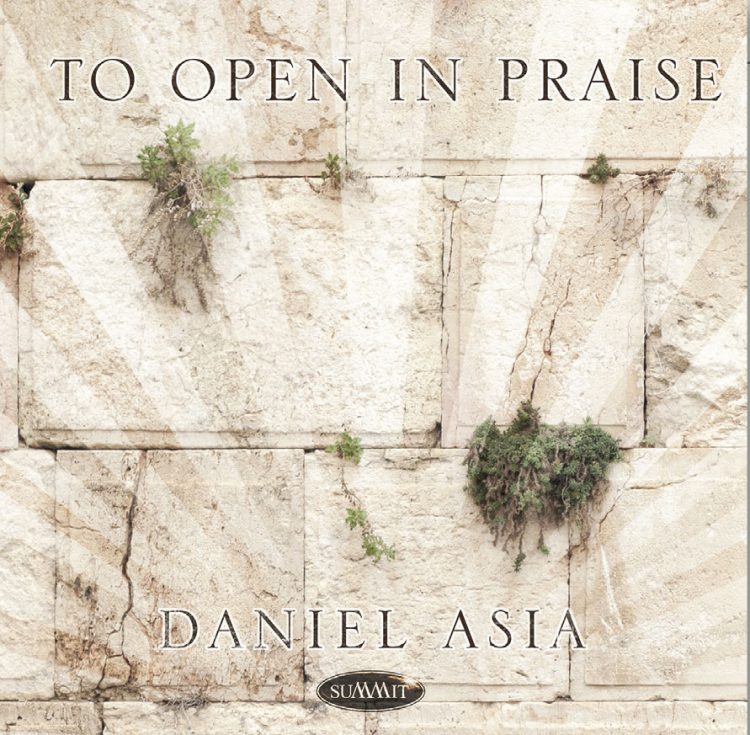-
Psalm 30
1 -
Breath in a Ram's Horn: 1. What Do We Know
2 -
Breath in a Ram's Horn: 3. Job Longed for the Grave
3 -
Breath in a Ram's Horn: 4. Yom Kippur
4 -
Breath in a Ram's Horn: 5. My Father's Name Was
5 -
Amichai Songs: 1. God's Hand in the World
6 -
Amichai Songs: 2. Jerusalem
7 -
Amichai Songs: 3. Through Two Points Only
8 -
Amichai Songs: 4. Sonnet from the Voyage
9 -
Amichai Songs: 5. Almost a Love Poem
10 -
Amichai Songs: 6. A Young Soldier; Like Torn Shirts; In the Right Angle
11
From the Composer:
The three works on this CD were written over a twenty-five year period. They look at the human experience through Jewish texts: a Jewish sacred text, and the poems of a New York Jewish poet and an Israeli Jewish poet. This is to say that we all have prisms through which we mediate our understanding of the world and our place in it. In the beginning God spoke the world into being, and we humans continue to formulate the world through our verbalization of it. Musicians do this through that articulation of sound which compliments words, gives them depth, and color. In the compositions presented here, words and music unite to let us feel, which is necessary before rationalization and words take over, and to present a multiplicity of understandings through their interaction. Intuition, that often inchoate stream of possibility, drives composers and poets to find their own place in the universe of music and poetic image. The process suggests more questions than answers, and so the next musical composition or poem. These pieces aim for a sense of honesty in that regard, of who we are, how we live, and evokes the incipient Meaning that underlies human existence. Finally then, the work presented here aspires to connect us to the mystery of our own ongoing, through which we reach for that which is beyond our grasp, and in doing so requires us to open in praise.
Psalm 30, a song for the dedication of the house, is about transformation from fear and trepidation to one of belief in the powers and wonder of God. The concluding lines are “Thou hast changed my mourning into dancing; thou hast put off my sackcloth and girded me with joy; so that my soul may praise thee, and not be silent. Lord, I will thank thee forever.” The music combines a somewhat mournful quality with more dance-like material (particularly in the violin solo), and also includes a melody that more than hints at its joyful chassidic roots. The work ends without a complete resolution, but instead with a drifting off, as all sound fades into the infinity of forever, of questions unanswered.
Psalm 30 was written for Jack Chomsky, baritone, and first performed by him, Daniel Heifetz, violin, and J. Randal Hawkins, piano on April 13, 1986. It was commissioned by Marilyn and Lee Skilken in memory of Marilyn’s father, Samuel Mintzes, Congregation Tifereth Israel, Columbus, Ohio, and is dedicated to Cantor Jack Chomsky.
The poems of Breath in a Ram’s Horn range from the sublime to the mundane, from the sacred to the profane. The texts are by Paul Pines, who I met at the MacDowell Colony, an artist’s retreat in Peterborough, New Hampshire. We became close friends, partly as the result of a shared ferocity brought to the game of table tennis. I requested books of poetry, fell in love with his work, and have since written many compositions based on his writings.
His poems bring together disparate worlds, uniting a wealth of emotional perspectives. The imagery ranges from Ecclesiastes to the Blues, stating something universal that is culled from the simple and earthy. At the core of the work is man’s uneasy place in the universe; that of a curious bystander to his own inner world, living in a physical world he also hardly understands. How these interior and exterior worlds meet and interact is the enigma at the center of these poems; an enigma that is imbued with a wry and delicate sense of humor.
